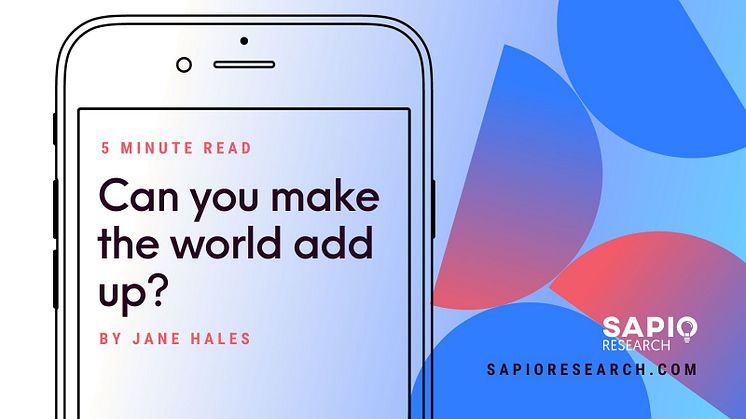
Blog post -
Can you make the world add up?
Tightening up our use of data in campaigns is an ethical step PR must take to ensure we’re not contributing to misleading narratives.
Reading the news can end up being two sides of the same coin. On one hand, you want to remain engaged with the news cycle; on the other, media has a pesky habit of championing the “extreme” aspects and stories that shock rather than inspire.
Statistics have a part to play in this cycle. They add credibility and weight to an article but can also make the article ‘weighty’. It is not necessarily the statistics themselves. Rather, it is how they are presented, often without a reference point.
One example of how difficult people find it to comprehend data came from an Ipsos MORI survey of 30,000 people, in 38 countries which found consumers to be out of step with credible statistics. They overestimated murder rates, proportion of prisons who are immigrants and percentage of teenage pregnancies among other things. It’s a phenomenon known as naïve realism.
Yet, it is not just the news machine that is responsible for the spread of misleading figures. Often it is a case of people who are uncomfortable with data latching onto them and using them as part of their own work. The comms industry is one such culprit and the result can be wide dissemination of facts and figures without context.
So, what can be done to combat this? Firstly, consumers can take the extra step of being critical thinkers when it comes to statistics by looking for context and becoming more comfortable with data. This is, perhaps, a pipe dream, but it would undoubtedly be a useful step.
A more realistic step is for writers to watch out for lack of statistical differences in survey data and focus on the figures that do represent a significant difference. By doing so, the most reliable information is being presented.
On a similar note, it has to become the duty of PR and comms professionals to acquaint themselves with responsible data practices. By this we mean that those who intend to use data must take the steps to ensure that they are presenting the full picture.
One such step is providing points of comparison that create a clearer picture of what is being described. For example, instead of simply saying that the population of the US is 335 million, further context can be added by including the world or UK population. This of course goes only some of the way to ensuring data integrity, but it is essential that people who use these stats are taking the steps to present the full picture.
This is just a brief snapshot of the situation and by no means have we covered every aspect. But, luckily there is someone who can, namely Tim Harford and his book How To Make The World Add Up. It has ten rules, plus the golden rule of curiosity, to help you tell better stories with data. We can’t promise that this will solve everything but it can go a long way to ensuring that people in PR and comms are providing the clearest picture possible.
Written by: Jane Hale, Co-Founder & Director, Sapio Research
About the author
Jane Hales is the co-founder of the award-winning Sapio Research. Sapio Research is a full-service, quantitative and qualitative market research company supporting Agencies and Brands to make confident decisions and achieve extraordinary headlines. Sapio does this through its ABC process: Audience, Brand and Content Research.

